“The intimacy is the currency,” says Kevin T. Porter, host of hit comedy podcasts like Gilmore Guys, Good Christian Fun, and Inside Voices. He’s speaking to me over Zoom about the unique extent to which the hosts of comedy podcasts tend to insert themselves into their output. “Even if there’s a defined format—like with Gilmore Guys, we talked about [Gilmore Girls], or with Good Christian Fun, we discuss Christian pop culture—it’s unavoidable with most of these shows that, after a certain amount of time, the personalities of the hosts become the draw.”
The phenomenon Porter is alluding to is one familiar to anyone who listens to a popular breed of comedy podcast, where the premise often gives way to free-flowing conversation and off-the-cuff banter. Shows like Porter’s, You Made It Weird with Pete Holmes, How Did This Get Made, Doughboys, and countless others fall into this category. You may have gotten into these shows because you wanted to hear funny people talk about bad movies or fast food chains—as they do on How Did This Get Made and Doughboys, respectively—but over 200 episodes into these shows’ runs, chances are you’ve grown equally (if not more) invested in their hosts. It’s an inevitable byproduct of listening to them joke around, express their opinions, and share personal anecdotes for hundreds of hours. The more candid and unreserved they appear, the greater this connection grows.
This puts comedy podcasters in a strange position, where the success of their output (and, for many, their livelihood) is tied proportionally to their ability to “be their most authentic selves” on a microphone for tens of thousands of fans each week. Even those who actively try to keep their podcasts from getting too confessional or introspective manage to foster deep personal connections with their audience just by virtue of putting their unique comedic sensibilities on display.
And yet, these bonds, often called “parasocial relationships,” are mediated and one-sided by definition, so it’s not always possible to tell how genuine they are. Comedy podcasters—much like everyone with a public platform—tend to be mindful about which opinions, anecdotes, and personality traits they share publicly, but because they broadcast their lives so freely otherwise, the things they omit feel more significant. To the extent that a chasm exists between these podcasters’ on and off-mic personas, it’s fascinating to think about what (and how much) they choose to keep private, how strictly they think about policing these boundaries, and whether they ever feel conflicted about giving so much of themselves away.
I reached out to four popular comedy podcasters, all of whom share varying degrees of intimacy with their fans, to get their thoughts: Ian Karmel, comedian, head writer of the Late Late Show with James Corden, and host of All Fantasy Everything; Laura Lane, journalist, comedy writer, and host of This Is Why (formerly This Is Why You’re Single); Jacquis Neal, actor, comedian, and host of Culture Kings; and the aforementioned Kevin T. Porter. This interview has been lightly edited for clarity and length.

How do you feel about sharing such an intimate relationship with your audience?
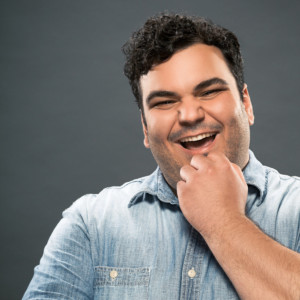
Karmel: It’s a bit like that famous meme that’s like, “how it feels to listen to a podcast,” where there’s an ice cream advertisement of three friends hanging out laughing, and then one real person sitting beside it and laughing along. Our podcast in particular is very personal, and I’ve since learned that there are lots of podcasts where you don’t learn anything about the hosts at all. I don’t mean to paint it negatively, because it’s also really wonderful. But it’s almost eerie how much people know about us. It reminds me of that parable about how a frog is boiled to death. If you drop them in a boiling pot, they’ll jump out immediately, but if you put them in the water when it’s lukewarm and increase the temperature gradually until it starts boiling, the frog never notices. That’s kind of what happened with the level of vulnerability and intimacy on the podcast. When I started the podcast, I hoped 100 people listened. It was just me and my buddies and we would talk about whatever. And it’s still like that, but now it’s like that for a much larger audience.

Porter: It was something that struck me as very interesting when I first got into comedy podcasts, like nine years ago. Listening to WTF with Marc Maron, there was a quality to it, where it’s like “we’re baring our hearts, man.” And it’s like pirate radio, where we talk about all of our feelings and all of our vulnerability. And the more the medium of podcasting has persisted, the more you start to see there’s a commercial consideration to this. Like, everyone heard Pete Holmes talk about his relationship with his mom for three years, and now he can sell out shows that maybe he wasn’t able to before. So you start to ask “What creates loyalty? What creates the sort of audience that’s always going to show up and want to participate?” It’s the parasocial thing I’m describing […] When we did the first live Gilmore Guys show way back towards the beginning of 2015, it was less than a year into the podcast, and it sold out immediately. And the audience was already so jacked up in a way where we didn’t have to prove ourselves in the way that normal standups and unknown acts do. Everyone was already on our side. And I think that feeling is only created through the willingness to share yourself.
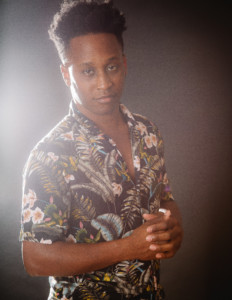
Neal: It’s interesting, because I’m also an actor, and I started doing theater when I was a teenager, so I’m very much used to the idea of people knowing me through my work. But the podcast thing where people actually feel like they know me as a person is a little weird. There’s a difference where people feel connected to me as an actual person rather than through my work. A lot of times, I’ll post something on Twitter about my work, and it’ll get, like, five likes. But if I post some personal shit, then it’ll get liked a bunch by podcast fans. […] But, at the same time, that’s kind of a strength of the show. It really does feel like you’re kind of just a fly on the wall, listening to homies talk. So, in that sense, it’s cool to know that people are listening and thinking “Man, this seems really personal.”

Lane: Angela [Spera], my co-host, and I like to joke that there’s no worse thing a friend or somebody we know in the real world can say to us than “I just listened to your podcast.” I have this extremely intimate relationship with all of my listeners, and they know about my sex life, and fights I’ve had with my friends, and they know my deepest, darkest thoughts about everything, but all that feels like it exists in some parallel universe from the people I actually interact with on a day-to-day basis. […] Our listeners write in and share very vulnerable details about their lives, and it’s made me feel like I want to share the same type of vulnerability and transparency with them. I went into deep detail about my miscarriage, for example, and I only told select close friends in my real day-to-day life about that. I’ve learned over time that, regardless of how specific and vulnerable the thing I’m sharing is, someone out there will be going through exactly what I’m going through, and it will help them. So I almost try to overshare for that reason.
What are the things you refrain from talking about on the podcast?
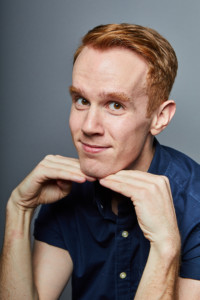
Porter: My philosophy is that if it’s my vulnerability, or if I’m the butt of the joke in some way, then I’m happy to share that without being in two minds about it. But if it’s something that’s part of someone else’s story, or involves details about someone else’s life, then I won’t share it. And in terms of my own personal life, there’s plenty of stuff I’m less candid about—there’s relationship stuff and dating stuff and work stuff. But the goal is to create an entertaining enough experience that it’s not noticeable if there’s gaps. Beyond that, I think you have to protect yourself a little. For me, there is always going to be a bit of separation and distance, not only for the run-of-the-mill privacy stuff, but also for my own sanity, so that I don’t give myself away 100 percent and start counting too much on people’s love and affection in a way that feels inappropriate.
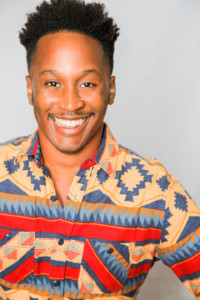
Neal: I don’t really feel conflicted about sharing, because if I didn’t want to, I wouldn’t. One thing that’s often forgotten with podcasts is that it’s very much the final product you’re listening to. So, if I ever say something and then I decide I don’t want that in there, I can tell my editor to take it out. But in terms of lines in the sand, I’m a little more protective about my personal relationships. Like, my life with my fiance, for instance. I don’t mind mentioning it because she’s part of my life, or for the sake of a joke, but I’m more cognizant of sharing those things. I don’t need podcast fans to have multiple opinions about our relationship.
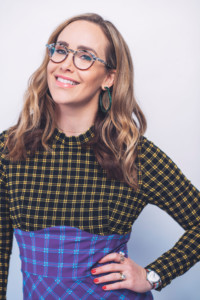
Lane: I share stuff about parenting on the podcast, but then when I had my son, I realized I was posting a lot of pictures of him on Instagram—and almost all my followers are very nice, but every now and again I’d get someone that would leave shitty comments. And, at that point, I was like, “This is getting a little weird.” So, even though I overshare everything on my podcast, I made my Instagram private. It felt like something changed when I had a kid, where I was like “You know what? It’s okay to have certain boundaries in my life.” […] I’m really careful about what I say about my family. My parents don’t listen, but my sister and sister-in-law do, so I’m just very careful with what I say about family. Otherwise, it would feel like I’m talking into a black hole, and I could kind of share anything. And when it comes to friends’ stories, I’ll either keep them anonymous, or change their name, or ask permission to share, depending on what’s appropriate.

Karmel: There have definitely been instances where we’ve talked about people and events from our lives, and those people have gotten upset and reached out, and we’ve had to stop talking about them. It sort of calls into question that famous quote of, like, “You own everything that happens to you.” I guess, I do own everything that happens to me, but then you talk about it on the podcast—especially one like ours, where you’re just sitting with two friends and fall into conversation—and then you’re like, “Oh, shit, I forgot that this was going out to tens of thousands of people.” And now tens of thousands of people know that thing I shared about my ex-girlfriend, and that’s going to get back to her. Overall, though, I might be slightly more guarded now than I was 100 episodes ago, but I’m still pretty open on the show. I very rarely stop myself from saying anything.
What does it feel like to interact with fans of the show? Does it feel like your public and private life are colliding in a way?
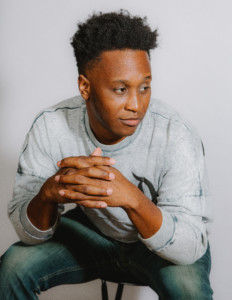
Neal: The one thing that bothers me is not so much that people feel like they know me, it’s that they can get a little bit too familiar. I know you feel like you know me, but you can’t just say anything to me. Like, if they see a whole bunch of the people they listen to interacting on Twitter and roasting each other, they might think “Oh, let me get in on that.” And it’s like “I don’t know you, bro!” But, overall, it’s not so much invasive as, once in a while, I’ll say something and people will trip all over themselves to be understanding. I once mentioned that my first grade teacher had died, and I had a couple fans reach out, like “That’s so awful. I’m so sorry you had to go through that.” And it’s like “Thank you, I appreciate it. But it was like 28 fucking years ago.” [laughs]
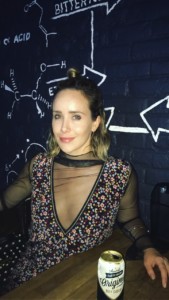
Lane: When I get an email from a listener, I always enjoy that. Because it’ll usually say something like “Thank you so much for sharing such-and-such experience. This actually happened to me.” I’ll usually screenshot that and send it to Angela, like “This is why we do the show.” We did an episode on grief, and we got a bunch of emails from people that have recently lost someone, thanking us for sharing our stories of grief. But then sometimes on Instagram, someone will comment on a video of my son—and it’s always very positive, because I’ve blocked anyone that said anything negative, and my account is private now—but they’ll comment, like, “Oh my god, he’s gotten so big!” And that’s always a little uncomfortable and weird, because I don’t know them. But then I remind myself that I also geek out and have moms that I follow on Instagram who I feel like I know even though I’ve never met them, so it’s not that different.

Porter: I usually like that feeling because, like David Letterman used to say, it makes it feel like a small town. And I feel like that’s even truer with podcasts, because at the end of the day, even the biggest stars in podcasting aren’t movie stars. Sure, sometimes fans will reference details about my life when they meet me, but most of the details they bring up aren’t like “Hey, I heard about this family thing that you’re going through.” It’s things that I’m pretty sure I’ve disclosed before; things that are more frivolous and less vulnerable. Like, “I remember you said you cried at Paddington. I just watched it for the first time!” It’s stuff like that, where I would want to talk about it with anybody.

Karmel: It’s a little jarring sometimes. Like, they’ll make inside jokes like about your life. And you’re like, “This is the first time we’ve breathed the same oxygen!” But all that stuff is more than balanced out by the many more wonderful interactions I’ve had that’ve stuck with me. An interesting thing I’ve noticed about the level of intimacy we have on the podcast is that—I don’t know if we’ll ever be a massive podcast that has hundreds of thousands of downloads per episode—but the people who do listen to us are real motherfuckers who really fuck with us in a big way. Like, when we go on tour, the meet-and-greets last as long as the shows do, and people stay for the whole time. So, in that sense, the intimacy is returned in a lot of ways.
Before our tour stop last summer in Detroit, there was a girl who DMed us, saying “Hey, my boyfriend is coming to the show. He had cancer when he was younger and he thought he beat it, but it returned this year, and he’s a big fan, and he would listen to you guys while he was getting chemotherapy, and it made it a lot easier for him to get through.” And then he was one of the people in the line of the show in Detroit, and we met him, and—I know this all sounds so corny, but like this is what happened—we all stood there and stuck our arms around each other, and started crying. Because, for him to share that information with us is so amazing and beautiful and intimate. And then for him, I guess, it was emotional to meet us in person.
How close would you say you are in real life to the podcast version of yourself?
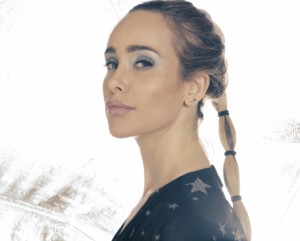
Lane: I don’t do this consciously, but I’m probably a more heightened version of myself, a more strongly opinionated version of myself. Funny enough, I notice that my podcast self has kind of bled into my everyday life sometimes where I’ll start being a less filtered version of myself, and I almost have to remind myself that I’m not on the podcast. In that way, it’s made me more comfortable talking about and sharing things I thought were taboo before I started talking about them on the podcast. But otherwise I try to observe some sort of social etiquette in real life, where I’ll be professional with work people, or like, I won’t talk about vibrators with my mother-in-law. […] I think all of us have different versions of ourselves, and we’re a kaleidoscope of personalities in a way.

Karmel: The real-life version of me is a little less presentational and more three dimensional. Like, I try not to ever be grumpy on the podcast, but I definitely get grumpy, or sad, or emotional sometimes. I will say, my co-host, Sean, is pretty fucking close to the real-life version of himself. He’s just the sweetest, most gracious, and most appreciative person on-mic and off-mic. But, I feel like I’m pretty close to who I actually am on there. There are parts of me that are turned up and there are parts of me that are turned off. But you definitely get a closer look at who I am through the podcast than you would through other forms of entertainment.

Porter: There’s always a little bit of difference, but it’s not a calculated one. That question kind of feels like, “Are you different with people’s parents than you are in real life?” And the answer is “no,” but I definitely present different things. Like, I would talk to you or a friend of mine in a different way than I would talk to a friend’s mom. I don’t really feel like I’m like this on the show, and I’m not really like this in real life; I feel like there’s a lot of overlap. There’s a large center in the Venn diagram between those two personas. There are just different things presented.
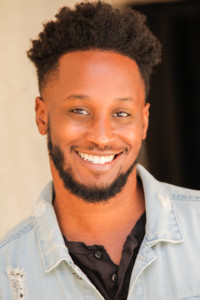
Neal: Yeah, I think of podcasting very similarly to the way you would view a stand-up comedian. You’re seeing who they are, but you’re seeing a very heightened version of that person. I don’t want to say very heightened, but you are seeing a heightened version of that person. You’re seeing that person “on,” so to say. But the cool thing about podcasting is that if I don’t feel like being on, then I don’t have to be, and sometimes you’ll see that. But I think my personality when I don’t have to be in front of a mic, or when I’m not on stage—people would be surprised to learn that I may not speak for 30 minutes uninterrupted. I’m okay with being an introvert. But all of that is in me. It’s not a struggle to bring one side out.




Comments